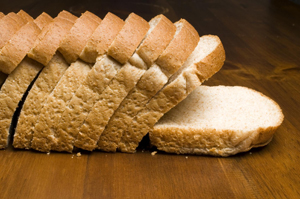Jerusalem, Jun 7: The health benefits of whole wheat bread and processed white bread may vary from one person to another, a new study suggests.
The findings could lead to a more rational approach for telling people which foods are a better fit for them, based on their microbiomes or gut bacteria, researchers said.
Despite many studies looking at which bread is the healthiest, it is still not clear what effect bread and differences among bread types have on clinically relevant parameters and on the microbiome.
Researchers from Weizmann Institute of Science in Israel carried out a comprehensive, randomised trial in 20 healthy subjects comparing differences in how white bread and artisanal whole wheat sourdough affect the body.
Surprisingly, the researchers found the bread itself did not greatly affect the participants and that different people reacted differently to the bread.
The team then devised an algorithm to help predict how individuals may respond to the bread in their diets.
Half of the participants were assigned to consume an increased amount of processed, packaged white bread for a week - around 25 per cent of their calories - and half to consume an increased amount of whole wheat sourdough.
After a 2-week period without bread, the diets for the two groups were reversed.
Before the study and throughout the time it was ongoing, many health effects were monitored.
These included wakeup glucose levels; levels of the essential minerals calcium, iron, and magnesium; fat and cholesterol levels; kidney and liver enzymes; and several markers for inflammation and tissue damage.
The researchers also measured the makeup of the participants' microbiomes before, during and after the study.
"The initial finding, and this was very much contrary to our expectation, was that there were no clinically significant differences between the effects of these two types of bread on any of the parameters that we measured," said Eran Segal, a computational biologist at the Weizmann Institute.
Researchers found that the glycemic response - the effect that food has on blood sugar - of some of the people in the study was better to one type of bread, and some better to the other type.
About half the people had a better response to the processed, white flour bread, and the other half had a better response to the whole wheat sourdough.
The findings for this study are not only fascinating but potentially very important, because they point towards a new paradigm: different people react differently, even to the same foods," said Eran Elinav from Weizmann Institute.
"To date, the nutritional values assigned to food have been based on minimal science, and one-size-fits-all diets have failed miserably," said Elinav. The study was published in the journal Cell Metabolism.







Comments
Add new comment